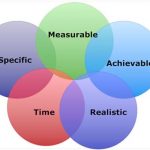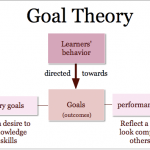Setting personal goals. Decide what you want to achieve and go for it!
Although the importance and benefits of setting goals for companies, departments or employees are broadly known, understood and agreed upon, when it comes to setting personal goals, opinions are mixed. Is this useful or just time consuming? How can you set both bold and realistic goals? How can these goals be achieved easily?
Why establish personal goals?
In their Goal Setting Theory, Professors Edwin Locke and Gary Latham emphasized the benefits of setting goals in the organizational context. According to them, performance is boosted when setting goals, as they exert different functions, from the directive to the energizing one. So, why not apply the same principles when it comes to setting personal goals? By adapting the Goal Setting Theory to the personal context, the following functions can be established for personal goals as well:
1. Directive: personal goals help individuals direct their attention and effort toward those specific activities that are relevant in their attempt to achieve said goals. Consequently, all effort that would otherwise be wasted in meaningless activities is now consciously directed towards specific purposes.
2. Energizing: bold, daring goals require more effort than the lower ones. Therefore, when establishing a specific goal and understanding its priority compared to others, people tend to dose their efforts for achieving it.
3. Motivational: having clear directions should offer people the motivation they need to achieve the established directions. However, there is a strong interdependency between goal setting and motivation. On the one hand, setting goals boosts your motivation into achieving certain results but, on the other hand, goals should only be established after understanding the inner motivations, as goals cannot reflect something that the individual has no wish or impulse in achieving.
What should you consider when establishing personal goals?
1. It is now generally acknowledged that, within organizations, the strategic objectives should rely on the company’s strategy. In personal terms, the strategy can be translated into the lifelong vision and general directions. The purpose of clarifying these, for yourself, is making sure that your goals lead to achieving the desired state in a given time, while moving away from all unnecessary distractions or aimless actions.
2. In order to have a better focus on the aspects that you want to improve, goals should be set for all key areas of your life, such as:
- Budget Management: in this area, you could focus either on saving money, or on reaching a certain level of monthly earnings, in a given time;
- Personal development: here you can include goals related to your education, career or even leisure and hobbies;
- Well-being: objectives related to fitness, health (both physical and psychological well-being), as well as your social life and relationships.
3. Make sure your objectives are measurable! If you set abstract goals, you are unlikely to be able to keep track of their level of attainment and, therefore, you risk losing focus and stepping away from the respective goals’ achievement. Beyond the well-known rule of formulating SMART (Specific, Measurable, Attainable, Relevant and Time-bound) objectives, the motivational function that goals exert strongly depends on the possibility of measuring their level of attainment and making decisions, based on your results.
Therefore, Key Performance Indicators (KPIs) can be established for your desired goals, in order to make sure you can take actions depending on the results. Using KPIs gives you clarity, focus on what matters and will support your personal improvement process. The topic of personal KPIs, specific to the aforementioned key areas will be detailed in a future article.
You have set your personal goals. What comes next?
The simple action of setting goals is pointless if it is not part of an entire process of improving your personal performance, be it related to career, social life, family, personal development, well-being or all of above.
Three simple rules apply for increasing the effectiveness of your personal goals:
1. Keep track of your objectives! Sometimes, it becomes difficult to extract the essential from the multitude of thoughts that cross our minds every day. Make sure you remember your objectives exactly, even by writing them down, if needed, and returning to them whenever you need to regain focus on your path to success.
2. Establish an action plan and stick with it! Once you have set your goals for a specific time frame and you have established the way to measure their attainment, you have to take actions in order to reach the desired state, regardless of the objective’s area. For example, if your career goal for the next five years is having a key position in an international company, the first actions you have to take are optimizing your CV and online professional profiles, researching for companies that fit your needs and values and applying for the desired job.
3. Review your objectives whenever necessary. Even if we talk about attaining those goals and moving on to a superior level or just readjusting goals that don’t fit your vision and long-term strategy anymore, objectives should be reviewed in order to get the maximum of benefits out of this practice.
Setting personal goals, far from being a time consuming, pointless activity, is one of the first steps that you should take into consideration when deciding to improve your personal performance. Applicable in all areas of your life, setting goals can make the difference between performing at your real capacity and wasting time and energy on aimless activities. Therefore, take the personal goal setting process for what it is: an impulse you offer yourself, for your own well-being!
References:
- Locke, E., Latham, G. (1984) Goal Setting: A Motivational Technique That Works!
- The KPI Institute (2014), The KPI Certified Professional Training Course
Image Source:

Tags: Objectives, Personal performance







Performance Magazine How To Plan, Develop, and Live a Goal-driven Life
| #
[…] Setting personal goals can be quite challenging. If you are interested to know more about what you should consider when establishing personal goals, read this article about setting personal goals. […]
Reply